Helping a loved one with an alcohol addiction can be challenging and emotionally taxing. However, with the right approach and resources, you can provide meaningful support. Understanding how alcohol use disorder affects individuals and the role you can play in their recovery is crucial to helping them find the best alcohol rehab program. In this guide, we will explore effective strategies to on how help an alcoholic, incorporating insights from Lilac Recovery Center.
A Brief Overview of Alcoholism
Alcoholism, or alcohol use disorder, is a serious condition characterized by an inability to control alcohol use despite adverse consequences. Recognizing the signs of alcohol addiction is the first step in providing support. Symptoms include frequent binge drinking, alcohol cravings, and withdrawal symptoms when not drinking. It’s important to understand that alcohol use disorders can lead to serious life consequences, including health issues, strained relationships, and financial problems.
Recognizing Alcohol Abuse in a Loved One
Identifying a drinking problem in a loved one is a crucial step in providing the necessary help and support. Alcohol misuse and abuse often manifests in various behavioral, physical, and emotional signs. As a family member, being vigilant and observant can make a significant difference in recognizing these signs early and taking appropriate action.
Signs of Alcohol Abuse in a Loved One’s Drinking Habits
- Increased Frequency of Drinking: Drinking more often than usual, binge drinking, or an increase in occasions where they feel the need to drink.
- Neglecting Responsibilities: Missing deadlines, poor performance at work or school, and neglect of household duties.
- Secretive Behavior: Hiding drinking habits or becoming secretive about activities.
- Social Withdrawal: Decline in social interactions and activities they once enjoyed, preferring to drink alone.
- Risky Behaviors: Engaging in risky behaviors such as drinking and driving, physical altercations, or legal issues related to alcohol use.
- Changes in Appearance: Sudden weight loss or gain, poor hygiene, and a general decline in personal care.
- Frequent Hangovers: Regularly experiencing headaches, nausea, and sensitivity to light and sound.
- Health Issues: Unexplained health problems, such as liver disease, gastrointestinal issues, and cardiovascular problems.
- Withdrawal Symptoms: Experiencing shaking, sweating, irritability, and anxiety when not drinking.
- Mood Swings: Frequent mood swings, irritability, anger, and sudden emotional outbursts.
- Depression and Anxiety: Signs of depression or anxiety that may be connected to their drinking habits.
- Defensiveness and Denial: Becoming defensive or denying having a drinking problem when confronted.
How to Help an Alcoholic
1. Approach with Empathy and Understanding
Offering support with empathy is crucial. When discussing alcohol use with your loved one, avoid judgment and criticism, as these can push them away and exacerbate feelings of shame and guilt. Instead, focus on expressing your concern about how alcohol affects their life and the lives of other family members. Use compassionate language and show that you care about their well-being. A supportive approach can help build trust and open the door to honest conversations about their drinking habits and the impact of alcohol on their life.
2. Communicate Effectively
Effective communication is key to helping an alcoholic. Choose a calm, private setting to talk honestly about their drinking habits. This ensures that your loved one feels safe and less defensive. Use “I” statements to express how their drinking affects you and other family members. For example, say, “I feel worried when you drink heavily because I care about your health,” rather than accusatory statements like, “You always drink too much.” This approach helps convey your concerns without making them feel attacked, promoting a more productive and supportive dialogue about their alcohol use and the need for change.
3. Provide Support
Providing practical support is essential in helping an alcoholic. One effective way to offer support is by attending support groups together, such as Alcoholics Anonymous, which can offer ongoing support and a sense of community. Support groups provide a platform for sharing experiences and finding encouragement from others facing similar challenges. Additionally, helping them with daily responsibilities, such as managing household tasks or childcare, can reduce their stress and allow them to focus more on their recovery. Encouraging healthy activities, such as exercise or hobbies, can also help divert their attention from drinking alcohol and promote a healthier lifestyle.
4. Encourage Professional Help
Encouraging your loved one to seek treatment is essential for their recovery. Treatment options at Lilac Recovery Center include medical supervision, detox programs, and behavioral treatments. Professional help can address the physical, emotional, and psychological aspects of alcohol addiction. Emphasize the benefits of professional treatment for alcohol addiction, highlighting how it can lead to long-term recovery and fewer alcohol-related problems. Explain that professional treatment can provide the tools and support needed to manage alcohol use disorders and achieve sobriety. Remind them that seeking professional help is a courageous step towards a healthier life.
5. Set Boundaries
Setting healthy boundaries is important for both you and your loved one. Clearly communicate what behaviors are unacceptable and stick to these boundaries. For example, you might set a boundary that drinking is not allowed in your home or that you will not cover up for their drinking-related issues. This approach helps manage stress and ensures you can provide ongoing support without compromising your well-being. Boundaries also encourage your loved one to take responsibility for their actions and understand the impact of their drinking on themselves and others. Maintaining these boundaries can support their journey toward recovery while protecting their mental health.
Supporting Sobriety
Supporting sobriety involves celebrating milestones and encouraging healthy habits. Create an environment that minimizes alcohol use and promotes activities that do not involve consuming alcohol. Encouraging participation in support groups like Alcoholics Anonymous can provide a community of ongoing support.
Dealing with Alcohol Abuse Relapse
Relapse is often part of the recovery process. If your loved one relapses, remain calm and offer support without enabling their drinking habits. Encourage them to return to treatment and remind them that seeking professional help is always available.
Self-Care for the Supporter
Supporting an alcoholic loved one can be exhausting. It’s important to manage stress and seek support for yourself. Engaging in family therapy can help other family members understand the situation and provide mutual support. Taking care of your own mental health ensures you can remain a source of strength.
Help an Alcoholic by Reaching Out to Lilac Recovery Center
Helping an alcoholic is an ongoing process that requires patience, empathy, and dedication. By understanding alcohol use disorder and utilizing resources like Lilac Recovery Center, you can help your loved one stop drinking and achieve long-term recovery. Remember, professional help and support groups play a vital role in this journey. Encourage your loved one to seek treatment at the best alcohol and drug treatment center in San Deigo, CA, and be there for them every step of the way.




